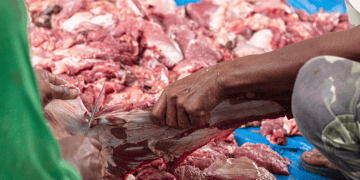In recent projections, the growth of meat imports in the Philippines is anticipated to moderate in the coming months. This forecast comes amid various factors influencing the local market and international trade dynamics.
The Philippine meat import sector, which has seen significant expansion in recent years, is expected to stabilize, reflecting adjustments in consumer demand and supply chain conditions. This adjustment period follows a period of rapid growth driven by shifts in consumption patterns and market dynamics.
Analysts suggest that this stabilization could be attributed to several factors, including economic adjustments, regulatory changes, and global supply conditions. These elements collectively shape the trajectory of meat imports, impacting market participants and stakeholders.
As the Philippine market adapts to these evolving dynamics, stakeholders are closely monitoring developments to gauge the implications for domestic production and trade policies. This period of stabilization underscores the intricate interplay between local market forces and global trade influences, influencing strategic decisions across the meat supply chain.
The anticipated moderation in meat import growth signifies a pivotal phase for industry stakeholders, navigating a landscape shaped by both domestic factors and international market trends.
Explore the newest supply chain news at The Supply Chain Report. Visit ADAMftd.com for free international trade tools.
#PhilippineMeatImports #MeatImportGrowth #PhilippinesMarket #SupplyChainDynamics #MeatTrade #MarketStabilization #ImportForecast #GlobalTrade #EconomicAdjustments #RegulatoryChanges #FoodIndustryTrends #MarketImpact #TradePolicies #PhilippineEconomy #MeatSectorInsights















